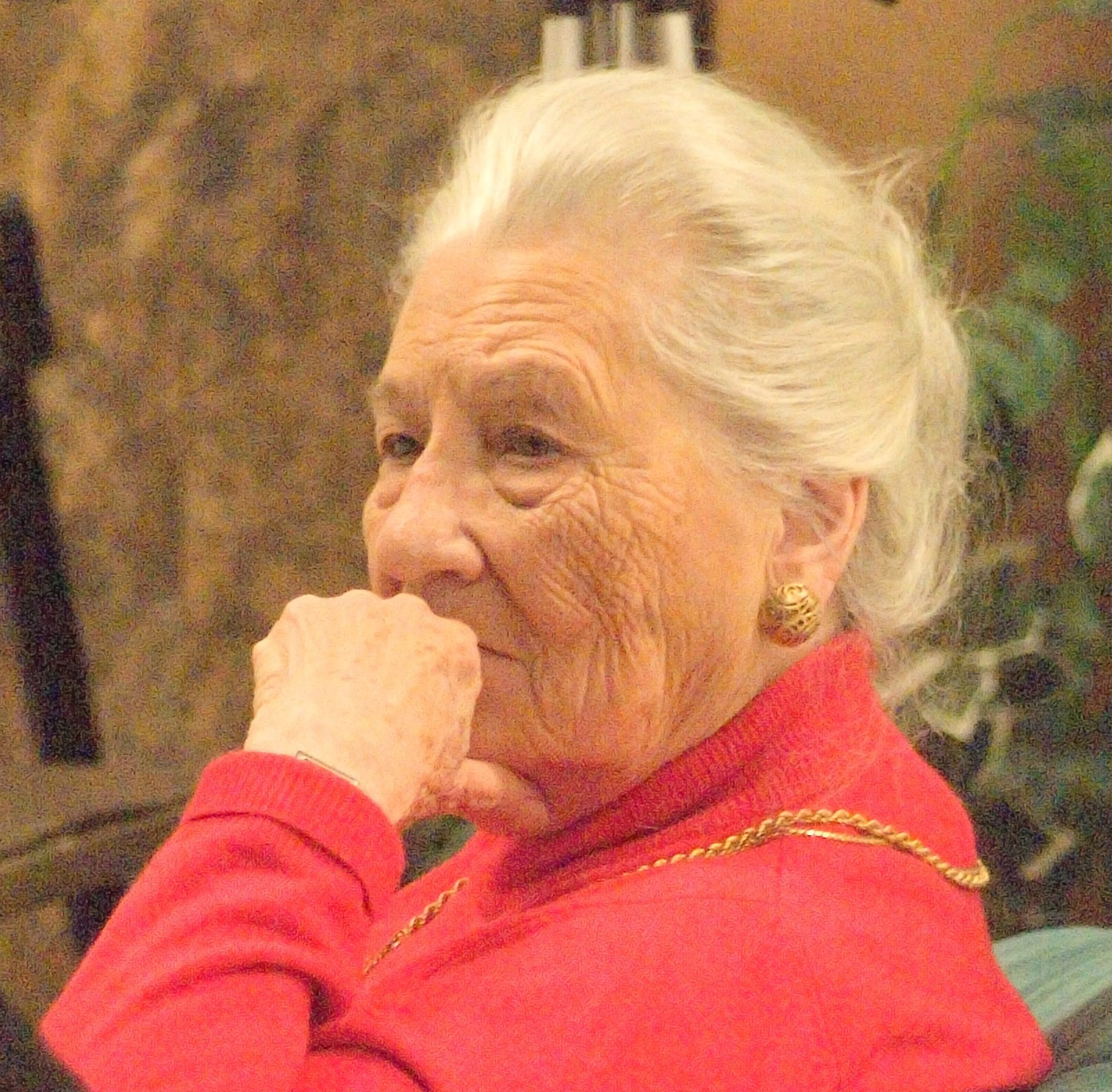Medicaid, Medicare, Nursing Homes, Social Security, Assisted Living, Wills, Trusts, Part D, Medigap, IRAs, annuities, and on... and on...
Before Janis Mason, Bob's mother, died at age 104 observed (more than once) that "getting old is not for sissies!"

Janis Mason
She was right. In addition to the usual physical and medical uncertainties, a vast array of legal and regulatory issues may seem insurmountable and can challenge the toughest souls.
We at Mason Law cannot fix everything, but there are some things we're very good at fixing.
How will my husband manage without me?
Careful planning with wills and trusts.
How can we afford a nursing home if we need one?
Elder Law and Medicaid Planning (we're experts).
Will we lose everything?
Certainly not (at least if we have anything to do with it!).
Why won't Medicare pay all my medical bills?
Probably not. Explore your options with us.
Should I give everything to the kids?
NO! An irrevocable Medicaid trust may be the answer.
How do we do it?
With over 37 years' legal experience devoted to wills, trusts, asset protection, Medicaid planning, Medicare, estates and other legal issues involved in elder law.
Bob is a noted authority on advanced trust planning, including tax issues with grantor trusts, Medicaid irrevocable trusts, and other elder law asset protection techniques.
It's called Elder Law. That is what we do at Mason Law.

Bob Mason, a two-time past Chair of the Elder Law Section of the North Carolina Bar Association, and a North Carolina Board Certified Specialist in Elder Law, not to mention a Certified Elder Law Attorney by the National Elder Law Foundation, is used to "thinking outside the box."
By being an expert on what goes on "inside the box" we can devise creative solutions for you and your family.
Bob is also recognized as an elder law expert on advanced trust and other planning techniques that will assist you or your loved ones to retain the dignity and security that is your due.
We urge you to have a look around at the various articles and information listed to the immediate right of this screen, or run a search (in the upper right hand corner), and we believe you'll agree that you have come to the right place!
What We Do: Elder Law Case Studies
The following are a few typical examples of the elder law cases we handle. Of course names and a few "give away" facts have been changed.
Elder Law Case Study #1
Maxwell and Sally Smart have been married 60 years and have two adult children. Max, 83, suffers from severe diabetes and is blind. Doctors told Max that his move to a nursing home is inevitable. Sally, 82, is in the early stages of Alzheimer's disease.
In a teleconference with Don Smart, Max's and Sally's son in California, Bob learned that Max and Sally own a 200 acre farm that has been in Sally's family for several generations. They live in a modest ranch-style home they built in 1963 in town, and have about $300,000 in liquid assets.
Max, Sally and the children are concerned about (i) financing Max's imminent nursing home stay, (ii) providing for the surviving spouse (they all seem to think Max will die first, but they don't know for sure), and (iii) protecting the family farm as a family legacy.
Bob mapped out an elder law plan for Don's parents during the teleconference, and suggested that Alice (Don's sister) bring Max and Sally in to the office for a meeting. Don could join by teleconference.
Later, Max and Sally agreed to the overall plan and asked Alice and Don to work with Bob to implement the plan.
Using a combination of trusts, properly designed wills and a Medicaid qualified annuity.
Max qualified for Medicaid immediately.
Sally had full access to $100,000 immediately.
And to the other $200,000 in less than a year.
Their home and family farm will be completely protected from estate recovery.
Upon the death of either Max or Sally everything they worked hard for will remain protected and the survivor of them will immediately qualify for Medicaid.
Which was important for the Smarts because they were concerned about Sally's continuing care after Max's death.
Elder Law Case Study #2
Gladys Johnston, 79, has Parkinson's disease and lives in an assisted living facility.
She owns a home and has $150,000 in certificates of deposit. She has monthly Social Security Income of $1,400 and a monthly pension of $900. She pays the assisted living facility $3,000 monthly. Gladys' only child died many years ago, but she has two grandchildren with whom she maintains a close ('more like Mom") relationship. Her late husband Albert served in the Army from 1950 to 1955. Gladys' Parkinson's disease is progressing and her physician has said she may need nursing home level of care in the next 18 to 24 months.
Gladys' grandson Chip is a successful accountant. Her granddaughter Rita is an RN, but due to serious health problems is not working and is on Social Security Disability Income. Rita is divorced with two teenage children. Chip and Rita are close.
Bob developed an elder law plan.
With the enthusiastic consent of all, Gladys established a "sole benefit" trust for Rita that would provide great flexibility for distributions to Rita. Gladys' distributed $100,000 to the trust and retained $50,000. Now qualified for monthly VA Aid and Attendance benefits of $1,056, she now has more than enough income to pay the assisted living facility without "dipping into" the $50,000 retained.
Gladys' also executed a power of attorney that authorized Chip to transfer the home and remaining cash into the sole benefit trust for Rita. Because transfers to the sole benefit trust are not Medicaid sanctioned transfers, Gladys will qualify for Medicaid immediately if she needs to move to a nursing home.
